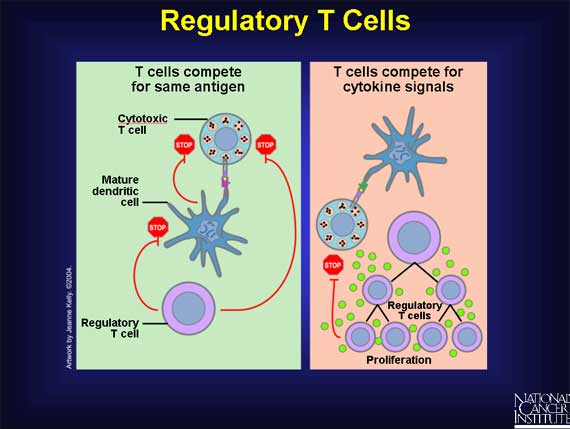Slide 24 | Regulatory T Cells |
  |
Your immune system also has a braking mechanism, a checkpoint to prevent immune responses to self. Without this checkpoint, autoimmune disease could flourish. An additional type of immune cells--regulatory T cells--are these critical braking agents.
Researchers don't yet know exactly how regulatory T cells operate. Some think these T cells recognize and compete for the same antigens as those that activate helper and cytotoxic T cells, but that regulatory T cells zero in on a different epitope. Another possibility is that cytotoxic or helper T cells only multiply when regulatory T cells are absent.
Regulatory T cells have become important to researchers who are trying to increase the efficacy of vaccines for cancer and AIDS. In addition to increasing the antigenicity of the immunizing element, a better understanding of regulatory T cells will permit scientists to reduce the immune system's brake activity, which often limits the effectiveness of vaccines.


